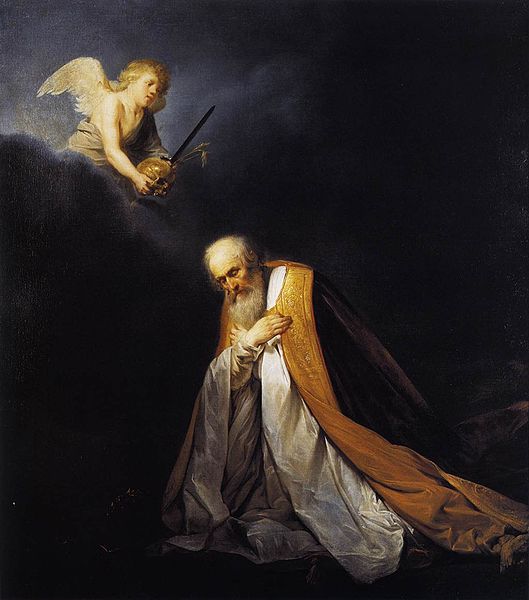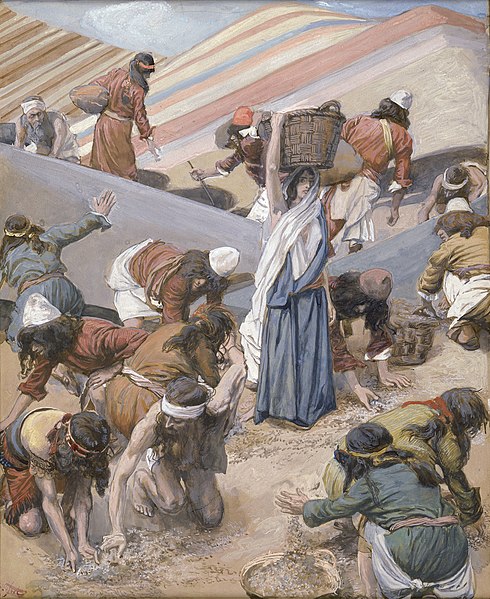この連載の第1回目で、米国の教会の最大の危機は、特に福音派において、神を忘れてしまったことだと言った。「神」という言葉を口にすることが多いのに、神を忘れてしまうというのは馬鹿げていると思われるかもしれない。
[toggle]I ended the first essay in this series by saying that the deepest crisis of the American church, and of evangelical Christianity especially, is that we have forgotten God. I recognize that it seems absurd to say we have forgotten God when God is on our lips so much of the time. [/toggle]ここ数十年の間に減ってはきたものの、それでも米国人クリスチャンは、賛美し、祈り、聖書を読む。また世論調査の際、宗教を「とても重要だ」とする人が他の国と比べてとても多い。どちらかと言えば、私たちは神についてよく語るし、逆に世間の人は神の話にうんざりしている。特に政策など政治的な話をするとき、神の名前が持ち出されるのを。では、なぜ私たちは神を忘れてしまったと言えるのか。
[toggle]While the numbers are slightly down from previous decades, American Christians worship, pray, read their Bibles, and say in polls that religion is “very important” significantly more than do people in most other nations. If anything, we sometimes talk about God so much, many in the culture are sick of God-talk, especially when his name is invoked in the public square to support one political cause or another. So how can I say we have forgotten God? [/toggle]
(写真:Alexandre Eggert)
まず、神を忘れていない教会がどのようなものか説明しよう。大覚醒(信仰的リバイバル)が起こり、米国に福音派が生まれたとき、神のことは忘れられていなかった。しかし今日、私たちは、その時の最初の愛を忘れてしまったのだ(この詳細は次回に)。まず、最初の愛がどのようなものだったかを思い出してみよう。
[toggle]Let me begin by picturing what the church looks like when it hasn’t forgotten God. Evangelicals certainly didn’t forget God at the birth of the movement in America, what we call The Great Awakening. But today I believe we have forgotten our first love—more of this in the next essay. But first a reminder of what that first love was like. [/toggle]私が語ろうとしている現実、つまり神を忘れていない教会には一つの特徴がある。神への切望だ。あまりにもそれが強いので、まるで酔っているようにも、熱狂しているようにも見える、そんな望みだ。
[toggle]The reality of which I am speaking—a church that has not forgotten God—exhibits one principal characteristic: a desire for God. A desire so intense it sometimes looks like drunkenness or even madness. [/toggle]このような情熱を知るために、まず読むべきは聖書だろう。
[toggle]The first place to go looking for a picture of this passion is Scripture. [/toggle]最初から最後までの望み
[toggle]Desire from Beginning to End[/toggle]その望みの最も鮮やかな例は、ダビデ王だ。ダビデは行動する人として知られ、軍事的指導者、国の王として国政に忙しかった(これは特筆すべき点だ。後で触れるが、行動主義は福音派の一部になり、時には荷物にもなっていたから)。彼はバト・シェバとの関係、その後、夫を殺害したことでも有名だ。しかし、「わたしの心に適う者」と言われるほどの称号を得たダビデの優れている点は、心のすべてで神を求めたことだろう(使徒13:22)。
[toggle]The most vivid example of such desire is King David. David was known as a man of action, a military leader, a nation’s king, so very busy with the affairs of state. (This is important to note, because later we’ll acknowledge how activism is part and parcel of evangelical faith.) He is also famous for his marital affair with Bathsheba, and the subsequent murder of her husband. But the one characteristic that seems to have earned him the label of “a man after [God’s] own heart” was that he was a man who sought God with all his heart. (Acts 13:22, NLT for this and all biblical quotations.) [/toggle]
ピーテル・デ・グレバー「祈るダビデ王」
詩編63編が最もそれをよく表している。
[toggle]Psalm 63 expresses this most eloquently: [/toggle][toggle]O God, you are my God;神よ、あなたはわたしの神。
わたしはあなたを捜し求め
わたしの魂はあなたを渇き求めます。
あなたを待って、わたしのからだは
乾ききった大地のように衰え
水のない地のように渇き果てています。今、わたしは聖所であなたを仰ぎ望み
あなたの力と栄えを見ています。
あなたの慈しみは命にもまさる恵み。
わたしの唇はあなたをほめたたえます。
命のある限り、あなたをたたえ
手を高く上げ、御名によって祈ります。
わたしの魂は満ち足りました
乳と髄のもてなしを受けたように。
わたしの唇は喜びの歌をうたい
わたしの口は賛美の声をあげます。(2~6節)
I earnestly search for you.
My soul thirsts for you;
my whole body longs for you
in this parched and weary land
where there is no water.
I have seen you in your sanctuary
and gazed upon your power and glory.
Your unfailing love is better than life itself;
how I praise you!
I will praise you as long as I live,
lifting up my hands to you in prayer.
You satisfy me more than the richest feast.
I will praise you with songs of joy. (v. 1–5) [/toggle]
神の臨在が特に神殿で見いだせると信じ、ダビデはこうも祈った。
[toggle]Believing that God’s presence was especially to be found in the Temple, David also prayed: [/toggle][toggle]The one thing I ask of the Lord—ひとつのことを主に願い、それだけを求めよう。
命のある限り、主の家に宿り
主を仰ぎ望んで喜びを得
その宮で朝を迎えることを。(27:4)
the thing I seek most—
is to live in the house of the Lord all the days of my life,
delighting in the Lord’s perfections
and meditating in his Temple. (27:4) [/toggle]
明白な神の臨在に憧れていたのはダビデだけではない。コラの子らによって書かれた詩編42編は、有名な書き出しで始まる。
[toggle]Of course, he isn’t the only psalmist to yearn for God’s palpable presence. Psalm 42 was written by “a descendant of Korah” and famously begins: [/toggle][toggle]As the deer longs for streams of water,涸れた谷に鹿が水を求めるように
神よ、わたしの魂はあなたを求める。
神に、命の神に、わたしの魂は渇く。(2~3節)
so I long for you, O God.
I thirst for God, the living God. (vv. 1–2) [/toggle]
詩編を知る人なら、このような例はいくつも挙げられるだろう。詩編の著者には、神を知りたいという願望があった。神の御心を知るというだけではなく。御心を行うというだけではなく。賢くなるだけではなく。義を求めるだけではなく。神を知り、神と共にいて、その臨在に浸っていたかったのだ。
[toggle]The examples could be multiplied, as any reader of the Psalms knows. The psalmists were driven by a desire to know God. Not just to do know his will. Not just to do his will. Not just to be wise. Not just to be righteous. But to know God, to be with God, to bask in his presence. [/toggle]「情熱というのは、感情的な性格の人のためだけにある」と、私のように冷静な性格の人は考えがちだ。正直言って、ダビデも、他の詩編の著者も、私から見れば感情的になりすぎているように見える。自分たちのみじめな状況を悲しんでいる時も、神の介入を切望している時も、神を情熱的に求めている時も。「もう少し落ち着けばいいのに」とつい思ってしまうのだ。
[toggle]Persons of a stoic nature, like me, are tempted to assume such passion is only for highly emotional personalities. Frankly, at times David and the other psalmists seem like emotional wrecks to me, either lamenting their sorry state or begging desperately for divine aid or longing passionately for God. My instinct is to tell them to just calm down. [/toggle]それでも、聖書を通して書かれているのは、神を愛し、もっと知りたいということだ。こうなると、自分の冷静さに疑問を持たざるを得ない。たとえば、預言者イザヤも同様だ。「わたしの魂は夜あなたを捜し、わたしの中で霊はあなたを捜し求めます」(26:9)
[toggle]Yet since this over-the-top drive to know and love God is found throughout Scripture, I have to question my stoicism. For example, we see it also in Isaiah the prophet: “In the night I search for you; in the morning I earnestly seek you” (26:9). [/toggle]
レンブラント「使徒パウロ」
パウロも同じ。
[toggle]We see it in Paul: [/toggle][toggle]… everything else is worthless when compared with the infinite value of knowing Christ Jesus my Lord. For his sake I have discarded everything else, counting it all as garbage, so that I could gain Christ and become one with him. (Phil. 3:8–9) [/toggle]わたしの主キリスト・イエスを知ることのあまりのすばらしさに、今では他の一切を損失とみています。キリストのゆえに、わたしはすべてを失いましたが、それらを塵あくたと見なしています。キリストを得、キリストの内にいる者と認められるためです。(フィリピ3:8~9)
そして、それはイエスにも見られる。といっても、イエスご自身が「神と共にいたい」と願ったのではなく(神が内に満ちておられる方には必要のないことだろう)、その教え、特に最も大切な教えの中にある。「心を尽くし、精神を尽くし、思いを尽くし、力を尽くして、あなたの神である主を愛しなさい」(マルコ12:30)。これは人間の生活の感情的・肉体的・霊的・精神的な部分のほとんどと言っていいだろう。
[toggle]And, we see it in Jesus, not so much in his yearning to be one with God (that would be absurd for the one in whom God fully dwells) but in his teaching, especially in what he said was the greatest commandment: “You must love the Lord your God with all your heart, all your soul, all your mind, and all your strength” (Mark. 12:30). That pretty much covers the emotional, physical, spiritual, and mental landscape of human life. [/toggle]言い換えれば、イエスが私たちに教えているのは、神を熱愛するということなのだ。
[toggle]To put it another way, Jesus tells us we are to be monomaniacs for God. [/toggle]繰り返すが、私のような人、つまり感情的にならないようにしている人間、安定した生活を続けようとしている人間、物事を難なくやり過ごそうとしている人間は、「この第一の掟、最も偉大な教えとは、単に神の戒めに従うことなのだ」と言って、何とかそこから逃げ出そうとする。そして、神の愛を示すために、他の人の世話を実践する。たとえば、友だちの願いを聞くとか、トラブルを抱えた同僚の話に耳を傾けるとか、貧困世帯に食料を配るボランティア活動に参加するとか、堕胎手術をする病院での徹夜祈祷や、人種差別に反対するデモ行進に参加するとかして。他の人を助ける何かをする──それこそが神を愛することだと。
[toggle]Again, people like me—who strive to keep my emotions in check, to navigate life on an even keel, to take things in stride—try to squirm out of this by saying that this first and greatest commandment is merely about obeying God’s commands. We demonstrate our love for him by caring for others in very practical ways—doing favors for friends, listening attentively to a troubled coworker, serving at the food pantry, and maybe even attending a prayer vigil at an abortion clinic or joining a protest march against racial injustice. Doing stuff that helps others—that’s what it means to love God. [/toggle]もちろん、それもその一部だろう。しかし肝心なのは、イエスは「神を愛することを示すために隣人を愛しなさい」と言ったのではないということだ。第一の掟は「神を愛する」ということで、それから第二の掟、つまり「隣人を愛しなさい」と告げたのだ。まるでその二つが違う種類の掟であるかのように。第二の掟は、第一の掟の補足ではない。
[toggle]That’s certainly part of it. But here’s the rub: Jesus didn’t say that loving the neighbor is the way we show we love God. He said the first commandment is to love God, and then he announced a second commandment—as if it were in a different category—which is to love others. This was not a commentary on the first commandment. [/toggle]そのような第一の掟の特殊な性質に加え、「神を愛する」ということには特別な何かがある。私たちは、感情のすべての幅をもって、霊的な情熱のすべてをもって、果てなき知的努力をもって、すべてのエネルギーを燃やす熱量で、「神を愛するように」との掟を与えられたのだ。
[toggle]Add to that the unique character of the first commandment—there is something extraordinary about the love of God: We’re commanded to love God with the complete range of emotion, with the full measure of spiritual fervor, with unending intellectual effort, and with every calorie of energy. [/toggle]いつものことだが、イエスは誇張して言っている。もし実際にそんなふうに神を愛したとしたら、私たちには隣人を愛する余裕がなくなってしまうからだ。しかし、イエスが何をおっしゃりたいかは分かる。イエスは、詩編で雄弁に語られている情熱を、ただ掟のかたちに変えただけなのだ。「地上であなたを愛していなければ、天で誰がわたしを助けてくれようか」(詩編73:25)。これこそ、イエスが私たちに追求するよう伝えた深くて永久的な望みだ。
[toggle]Jesus, as was his custom, is trafficking in hyperbole, because if we were to love God like this, we wouldn’t have anything left for the neighbor. But the point is made. Jesus is simply putting into command form the passion eloquently found in the Psalms: “Whom have I in heaven but you? I desire you more than anything on earth” (73:25). This is the deep and abiding desire he calls us to pursue. [/toggle]神に飢える
[toggle]Starving for God[/toggle]この望みの強さや不思議さをよく知るために、聖書の中にはさまざまなたとえがある。この考えを肉体的なこととしてたとえたのが、飢えと渇きだ。
[toggle]Scripture employs a variety of metaphors to drive home the intensity and wonder of this desire. One set traffics in the idea of bodily nourishment—hunger and thirst. [/toggle]
ジョームズ・ティソ「マナを集める」
これが最初に出てくるのは出エジプト記、モーセがマナの奇跡から教える場面だ。
[toggle]We see this first in the Exodus account, where Moses explains one lesson from the miracle of manna: [/toggle][toggle]… [God] humbled you by letting you go hungry and then feeding you with manna, a food previously unknown to you and your ancestors. He did it to teach you that people do not live by bread alone; rather, we live by every word that comes from the mouth of the Lord. (Deut. 8:3) [/toggle]主はあなたを苦しめ、飢えさせ、あなたも先祖も味わったことのないマナを食べさせられた。人はパンだけで生きるのではなく、人は主の口から出るすべての言葉によって生きることをあなたに知らせるためであった。(申命記8:3)
ご存じのとおりここは、イエスがサタンから断食をやめるようにと誘惑を受けた際に引用した箇所だ(マタイ4:4)。しかし、このたとえをイエスが用いたのはその時だけではない。荒れ野において御父は天からのパンでイスラエルの民を養う責任があったが、いまや「わたしの父が天からのまことのパンをお与えになる」とイエスは説明した(ヨハネ6:32)。
[toggle]This, of course, is the very verse Jesus quotes when tempted by Satan to break his fast. But this isn’t the only time Jesus employed this metaphor. On one occasion, he was explaining to a crowd that in the desert his Father was responsible for feeding the Israelites with bread from heaven, but he now he offers “the true bread from heaven.” [/toggle]すると、聴衆は「そのパンをいつもわたしたちにください」と応じる(34節)。
[toggle]To this his listeners reply, “Give us that bread every day.” [/toggle]それに対してイエスは言った。「わたしが命のパンである。わたしのもとに来る者は決して飢えることがなく、わたしを信じる者は決して渇くことがない」(35節)
[toggle]In response, Jesus says, “I am the bread of life. Whoever comes to me will never be hungry again. Whoever believes in me will never be thirsty” (John 6:35). [/toggle]聴衆はこの教えに混乱したが、イエスはさらにショッキングなことを言ってそれを倍増させた。
[toggle]When his listeners became increasing disturbed by this teaching, Jesus doubled down, saying something that no doubt shocked them: [/toggle][toggle]I tell you the truth, unless you eat the flesh of the Son of Man and drink his blood, you cannot have eternal life within you. … For my flesh is true food, and my blood is true drink. Anyone who eats my flesh and drinks my blood remains in me, and I in him (vv. 53, 55). [/toggle]「はっきり言っておく。人の子の肉を食べ、その血を飲まなければ、あなたたちの内に命はない。……わたしの肉はまことの食べ物、わたしの血はまことの飲み物だからである。わたしの肉を食べ、わたしの血を飲む者は、いつもわたしの内におり、わたしもまたいつもその人の内にいる」(53、55~56節)
この表現は暴力的であり、はっきり言って人食を思わせるようなたとえだ。しかし、その衝撃によって、もっと深い真実を、神と人間が一つになるということがどれほど強く個人的なことなのかを探らせようとしたのだ。食べ物や飲み物が私たちに栄養を与え、生きながらえさせ、体の一部になるのと同じように、イエスも私たちを維持し、栄養を与え、私たちと一つになるのだ。そのように親密で、命を維持する一致を求めるなら、他の何よりも、そのことに飢え渇きを覚えるはずだ。
[toggle]It is a violent, frankly cannibalistic allusion meant to shock them into seeing a deeper reality—the intense and personal nature of our union with God. As much as food and drink nourish and sustain us and become part of our bodies, so Jesus can sustain, nurture, and become one with us. And if we want such an intimate and life-sustaining union, we will hunger and thirst for it like nothing else. [/toggle]自分も含めて多くの読者が豊かな国で暮らしているので、聖書的なたとえはあまりよく理解できない。私たちの飢えや苦しみは、たったの数分で解決するからだ。ちょっと手を伸ばせば、冷蔵庫や店、自動販売機で食料を手に入れられる。私たちの飢餓とは、ちょっと不便だという程度で、食べ物は娯楽なのだ。テレビのバラエティー番組でシェフの創造性や食の豊かさを目にし、中には食通であることを誇りに思う人もいる。
[toggle]Most of us reading such words live in lands of abundance, so the biblical metaphor does not quite register. Our pangs of hunger needn’t last but for a few minutes. Within ready reach—in a refrigerator or store or vending machine—is something to nourish us. Hunger for us is mere inconvenience, and food an entertainment. We watch reality TV shows that revel in the abundance of food and in the creativity of chefs, and some of us pride ourselves in being “foodies.” [/toggle]聖書の著者は、私たちが享受しているような豊かさはあまり知らない。干ばつや飢饉を生き延びなくてはならないのは当たり前のことだった。食料とは、趣味でも、食欲を満たすものでもなく、生と死を意味するものだったのだ。
[toggle]The biblical writers knew little of the affluence we enjoy. It was not uncommon for them to endure periods of drought or famine. Food was not a hobby nor about satisfying cravings but often a matter of life and death. [/toggle]それは、現代の飢餓の苦しみに通じるところが多い。クリストファー・ヒッチェンズは『愛、貧困、戦争──旅とエッセイ』(Love, Poverty, and War: Journeys and Essays)で、北朝鮮の旅で見た飢餓について描写している。
[toggle]They would much more likely identify with the sufferers of modern-day famines. Christopher Hitchens, in his Love, Poverty, and War: Journeys and Essays, described one such famine on a trip to North Korea: [/toggle]畑では人々が、稲穂やトウモロコシから落ちた粒を拾って、どんな小さなものも見逃すまいとしている姿が見受けられた。彼らは困って、疲れ切っているようだった。数軒しかない町の薄汚れたレストランでは、いや、現代的なホテルでさえ、スープやお茶、コーヒーは、平壌新聞が透けて読めるほど薄い。一口大の、油だか軟骨だか得体の知れない物体が「アヒル」といって出された。ある晩、「こうなったら仕方がない」と、犬肉のスープを1杯食べることにした。とりあえず、スパイシーで栄養がありそうだったからだ。しかし、この滞在期間中ずっと、たとえば猫など、家庭で飼う動物がどこにもいないことに気がついたとたん、食欲が減退したという。
[toggle]In the fields, you can see people picking up loose grains of rice and kernels of corn, gleaning every scrap. They look pinched and exhausted. In the few, dingy restaurants in the city, and even in the few modern hotels, you can read the Pyongyang Times through the soup, or the tea, or the coffee. Morsels of inexplicable fat or gristle are served as “duck.” One evening I gave in and tried a bowl of dog stew, which at least tasted hearty and spicy … but then found my appetite crucially diminished by the realization that I hadn’t seen a domestic animal, not even the merest cat, in the whole time I was there. [/toggle]聖書的な神への飢え渇きとは、神のために必死になるということだ。詩編の著者は、神がいなければ空腹になり、喉(のど)が渇くと信じていた。皮膚が骨にくっつき、骨が透けて見えるるほどになると。命がないという状態が、その必死さに油を注ぐ。たった一粒の米のために這(は)いつくばるように。詩編の著者は、神を知ることと、その愛を求めた。そして、ここで栄養のたとえが効いてくる。「命にもまさる」(詩編63:4)というのだ。(後編に続く)
[toggle]To hunger and thirst for God in the biblical sense is to be desperate for God. The psalmist, among others, believes he is starved and dehydrated without God, one whose skin sucks on his bones and exposes his skeleton, whose listlessness fuels his despair, who scours the ground for even single grain of rice. The psalmist so desires to know God and his love—and here’s where the nourishment metaphor is transcended—he says it is better than life itself (Ps. 63:3). [/toggle]
